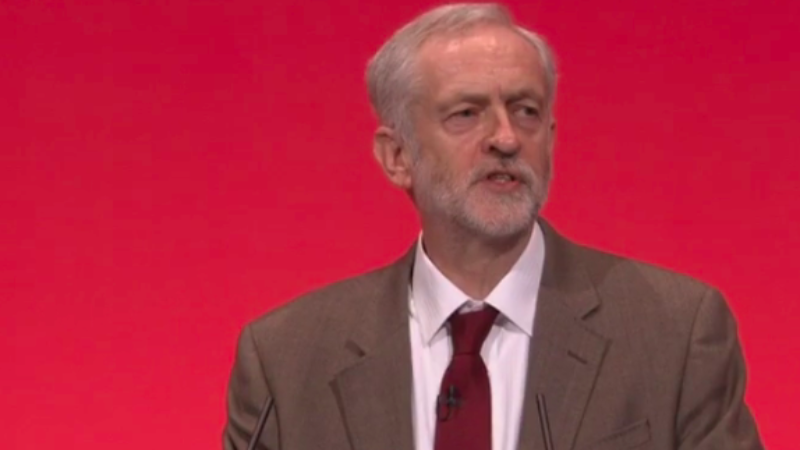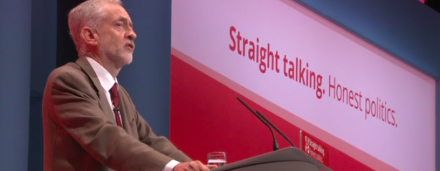

Jeremy Corbyn will change the face of British politics, and he will do it before he even has chance to set foot in Number 10. By drastically changing the nature of the main opposition in this country, he will ensure that the sands of our political landscape will have shifted unrecognisably by the time he exits the scene.
100 days after becoming Labour leader, we have already seen a remarkable shake up of the Labour Party. While six months ago it was almost impossible to see Corbyn as leader, it is now similarly difficult to imagine he will not be in place next Christmas, and even taking the party into the 2020 election. The only encouragement for those who wish to see the back of him is that because such an unprecedented shift took place so quickly, it could feasibly happen again. If that is your comfort, then I’m sorry to break it to you, but: just because Blackburn Rovers won the Premier League, doesn’t mean Leicester City will. We can all dream, I guess.
The most noticeable aspect of change in the party is membership; it has gone from under 200,000 on May 7th to over 370,000 now, with a fair old chunk of that coming in the last 100 days.
And while the headline figures are startling enough, they do not even account for the ‘Exitism’ that has seen disillusioned members cancel their direct debits. For obvious reasons, no official numbers are available, but some reckon that as many as 30,000 have left Labour since Corbyn’s election. That would mean the party has seen an influx of 200,000 new members in just seven months – an overall majority within the party, and almost all ‘Jeremy Corbyn supporters’ first and foremost.
How involved they will want to get in party affairs is yet to be seen. In many safe and Labour-leaning marginal seats where the membership rise has been less pronounced than in London, my understanding is that canvassing sessions and meetings are attended by exactly the same people who would come before the election. While reports suggest that new members have dragged down the average party member age by a decade, and Young Labour (under 27s) has seen its membership treble, many meetings for new members and Momentum gatherings have been notable for the, er, maturity of the audience.
One theory posited for the slightly ethereal nature of many of these new members is that they are part of a new generation of clicktivists. They organised online to put pressure on undecided MPs to nominate Corbyn in the leadership contest, thereby getting him on the ballot paper. They used the internet to great effect to find and mobilise potential Corbyn supporters throughout the summer, ensuring he won. And most recently, they wrote to Labour MPs in their thousands to oppose airstrikes on ISIS in Syria. It’s reckoned that at least a couple dozen nervy MPs opposed action after seeing their inboxes creak under the weight of correspondence from those they now feared had the power to deselect them.
Deselections are like elections. The last people you want to ask for predictions are MPs. They fear the worst. Their input is useless. The truth is that there are vanishingly few places where deselections are possible, let alone likely. Mandatory reselection would cost too much political capital for the hard left, and lose Corbyn support among his softer base if it was pushed forward. The idea that boundary changes will do the dirty work is also far-fetched – if the 40% limit for re-standing is kept, then almost all MPs will survive. If there are attempts to raise it, it will be taken as an act of civil war.
No, these new e-activists have seen their success come so far from sat in front of their laptops, and may not really comprehend the simple man-hours involved in deposing a sitting MP (let alone winning an election). That’s why Corbyn’s online Syria consultation was so clever: it allowed him to flex his muscles and scare his MPs, while claiming it as a victory for democracy. The success of it can be seen by the fact he has pledged to do it again in future. The new politics has a new whips’ office.
If Corbyn can be successful in moving policy formation power away from MPs over the next few years, then the obsessive concern about selections will have proved to be a massive red herring. The moderates organising to ensure places on the National Policy Forum by taking the chair roles of the PLP backbench committees will have been for nothing if the online surveys are given any sway in deciding Labour’s 2020 manifesto.
That ability to summon an online lobbying horde should also see Corbyn soundly through any threats to his leadership. There could be moves to cement his role constitutionally, such as making it clear that an incumbent does not need to be re-nominated to stand. Indeed, when I interviewed him back in August, he cited the 1988 leadership election, where Neil Kinnock did need to find nominations again, as a potential model for future leadership challenges – a position strengthened by legal advice.
But while there is such a strong support to be mobilised for him, he needn’t be scared of finding those nominations. The Syria vote shows that enough MPs will, effectively, do what they’re told. The most plausible way Jeremy Corbyn won’t be Labour leader by 2020 is if the membership are no longer behind him, and frankly, that doesn’t seem very likely at all.




More from LabourList
A gory night for Labour
‘SEND reforms are a crucial test of the opportunity mission’
Delivering in Government: your weekly round up of good news Labour stories